|
Books Should Be Free Loyal Books Free Public Domain Audiobooks & eBook Downloads |
|
|
Books Should Be Free Loyal Books Free Public Domain Audiobooks & eBook Downloads |
|
Fiction |
|---|
|
Book type:
Sort by:
View by:
|
By: Anthony Trollope (1815-1882) | |
|---|---|
 The Mistletoe Bough
The Mistletoe Bough
| |
 The Man Who Kept His Money in a Box
The Man Who Kept His Money in a Box
| |
 Struggles of Brown, Jones, and Robinson
Struggles of Brown, Jones, and Robinson
Billed as a satire concerning the dishonest advertising and business practices of the day, it tells the tale of an upstart clothing business doomed from the get-go to utter failure. Its senior partner (the elderly Brown, who provides the investment) is far too timid for business. His son-in-law (Jones, who runs the store) is stealing from the till, and the junior partner, Robinson (who writes advertisements for the store) is so obsessed with the idea that advertising alone will drive the business, he uses up every last penny of the capital investment in a series of increasingly ludicrous ad campaigns and publicity stunts... | |
 The Kellys and the O'Kellys
The Kellys and the O'Kellys
| |
 The Parson's Daughter of Oxney Colne
The Parson's Daughter of Oxney Colne
| |
 A Ride Across Palestine
A Ride Across Palestine
| |
 Ralph the Heir
Ralph the Heir
As usual, Trollope creates a nice variety of characters of different English classes, sentiments and positions. The primary themes are the inheritance of property, extravagance or reason in the spending of assets, the mating of young people, and the electoral practices of the time. The election chapters are based on Trollope's own experiences when he ran for Parliament.There are, of course, many subplots which allow Trollope to express, through dialog, his opinions about greed, snobbery, work ethics and dandyism... | |
 Nina Balatka
Nina Balatka
A romance set in Prague between a Catholic and a Jew. In this short novel, Trollope moves away from his usual milieu to explore a theme which has universal resonance. | |
 Returning Home
Returning Home
| |
 Miss Sarah Jack of Spanish Town, Jamaica
Miss Sarah Jack of Spanish Town, Jamaica
| |
 Chateau of Prince Polignac
Chateau of Prince Polignac
| |
 Relics of General Chasse
Relics of General Chasse
| |
 The House of Heine Brothers
The House of Heine Brothers
| |
 La Mere Bauche
La Mere Bauche
| |
 John Bull on the Guadalquivir
John Bull on the Guadalquivir
| |
 O'Conors of Castle Conor
O'Conors of Castle Conor
| |
 Mrs. General Talboys
Mrs. General Talboys
| |
 George Walker at Suez
George Walker at Suez
| |
 La Vendée
La Vendée
| |
By: Fyodor Dostoyevsky (1821-1881) | |
|---|---|
 Crime and Punishment
Crime and Punishment
A mysterious crime is being plotted in a tiny garret above a dilapidated apartment building in St Petersburg in Russia. The plotter, Rodion Raskolinikov, is a poor student who has delusions of ridding the world of “worthless vermin” and counter balancing these crimes with good deeds. He commits a murder to test his own theories and prove that crime comes naturally to the human species. Crime and Punishment is a path-breaking novel of ideas that changed the course of novel writing in the 20th century... | |
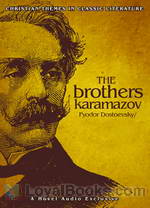 The Brothers Karamazov
The Brothers Karamazov
Set in 19th century Russia, The Brothers Karamazov (Russian: Братья Карамазовы) is the last novel written by the illustrious author Fyodor Dostoyevsky who died a few months before the book's publication. The deeply philosophical and passionate novel tells the story of Fyodor Karamazov, an immoral debauch whose sole aim in life is the acquisition of wealth. Twice married, he has three sons whose welfare and upbringing, he cares nothing about. At the beginning of the story, Dimitri Karamazov, the eldest son who is now a twenty-eight year old war veteran, returns to his home town to claim the inheritance left to him by his dead mother... | |
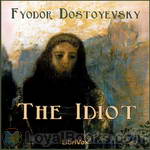 The Idiot
The Idiot
The extraordinary child-adult Prince Myshkin, confined for several years in a Swiss sanatorium suffering from severe epilepsy, returns to Russia to claim his inheritance and to find a place in healthy human society.The teeming St Petersburg community he enters is far from receptive to an innocent like himself, despite some early successes and relentless pursuit by grotesque fortune-hunters. His naive gaucheries give rise to extreme reactions among his new acquaintance, ranging from anguished protectiveness to mockery and contempt... | |
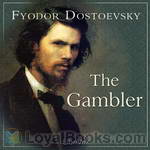 The Gambler
The Gambler
The Gambler is a short novel by Fyodor Dostoevsky about a young tutor in the employment of a formerly wealthy Russian general. The novella reflects Dostoevsky's own addiction to roulette, which was in more ways than one the inspiration for the book: Dostoevsky completed the novella under a strict deadline so he could pay off gambling debts. | |
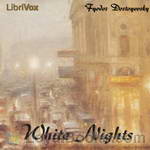 White Nights & Other Stories
White Nights & Other Stories
White Nights and Other Stories by Fyodor Dostoyevsky is a compilation published in 1918 by The MacMillan Company, NY (USA) and Heinemann (UK). It contains these 7 works:- White Nights- Notes from the Underground- A Faint Heart- A Christmas Tree and a Wedding- Polzunkov- A Little Hero- Mr. Prohartchin | |
 Possessed
Possessed
| |
By: Edward M. Forster (1879-1970) | |
|---|---|
 Where Angels Fear to Tread
Where Angels Fear to Tread
On a journey to Tuscany with her young friend and traveling companion Caroline Abbott, widowed Lilia Herriton falls in love with both Italy and a handsome Italian much younger than herself, and decides to stay. Furious, her dead husband’s family send Lilia’s brother-in-law to Italy to prevent a misalliance, but he arrives too late. Lilia marries the Italian and in due course becomes pregnant again. When she dies giving birth to her child, the Herritons consider it both their right and their duty to travel to Monteriano to obtain custody of the infant so that he can be raised as an Englishman. | |
 The Longest Journey
The Longest Journey
Frederick Elliot is a student at early 20th century Cambridge, a university that seems like paradise to him, amongst bright if cynical companions, when he receives a visit from two friends, an engaged young woman, Agnes Pembroke, and her older brother, Herbert. The Pembrokes are Rickie’s only friends from home. An orphan who grew up living with cousins, he was sent to a public (boarding) school where he was shunned and bullied because of his lame foot, an inherited weakness, and frail body. Agnes, as it happens, is engaged to Gerald, now in the army, who was one of the sturdy youths who bullied Rickie at school... | |
By: James Allen (1864-1912) | |
|---|---|
 As a Man Thinketh
As a Man Thinketh
“A man is literally what he thinks, his character being the complete sum of all his thoughts,” is one of the quotes from James Allen's classic self help books, As a Man Thinketh. Published in 1902, it provides many more such insightful concepts on the power of thought and its effect on a human being's personality and behavior. This volume is more of a literary essay than a complete book and its title is based on a Biblical proverb, “As a man thinketh in his heart, so is he.” Taking this piece of ancient wisdom further, James Allen explores the far-reaching effects of the inner workings of a person's mind and motivation... | |
By: Walt Whitman (1819-1892) | |
|---|---|
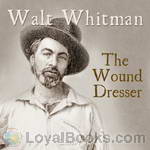 The Wound Dresser
The Wound Dresser
The Wound Dresser is a series of letters written from the hospitals in Washington by Walt Whitman during the War of the Rebellion to The New York Times, the Brooklyn Eagle and his mother, edited by Richard Maurice Burke, M.D., one of Whitman's literary executors. | |
By: Edgar Wallace (1875-1932) | |
|---|---|
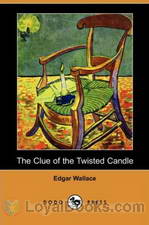 The Clue of the Twisted Candle
The Clue of the Twisted Candle
This story describes a house in Cadogan Square, London, in which extensive alterations have been done by the Greek owner. One of the rooms is built like a safe. The walls floor and roof are made of almost indestructible reinforced concrete. The only door to the room can only be opened or closed by the owner. The single window is unreachable and there is a steel safe built into the outer wall which is in plain sight of the local policeman who patrols the street every night. Yet it is in this barred and shuttered room that the Greek is found brutally murdered... | |
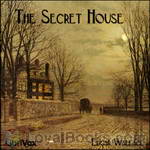 The Secret House
The Secret House
A stranger and foreigner arrives at the offices of a small publication in London only to be faced by the “editor” whose face is completely swathed in a veil. Nothing is as it seems, and it quickly becomes evident that both are bent on more than lively gossip about the elite. Blackmail and opportunism is the order of the day. When two men are found shot to death outside the door of Mr. Farrington the millionaire who just happens to live a few doors from T. B. Smith, the head of the secret police, the connections to blackmail are not long in coming. Were these men shot by the blackmailer? Who is actually what he seems to be? | |
 The Man Who Knew
The Man Who Knew
| |